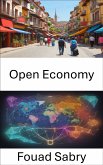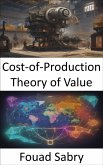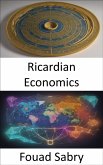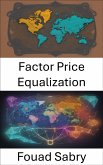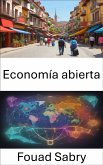What is Scarcity
In economics, scarcity "refers to the basic fact of life that there exists only a finite amount of human and nonhuman resources which the best technical knowledge is capable of using to produce only limited maximum amounts of each economic good." If the conditions of scarcity didn't exist and an "infinite amount of every good could be produced or human wants fully satisfied ... there would be no economic goods, i.e. goods that are relatively scarce..." Scarcity is the limited availability of a commodity, which may be in demand in the market or by the commons. Scarcity also includes an individual's lack of resources to buy commodities. The opposite of scarcity is abundance. Scarcity plays a key role in economic theory, and it is essential for a "proper definition of economics itself"."The best example is perhaps Walras' definition of social wealth, i.e., economic goods. 'By social wealth', says Walras, 'I mean all things, material or immaterial, that are scarce, that is to say, on the one hand, useful to us and, on the other hand, only available to us in limited quantity'."
How you will benefit
(I) Insights, and validations about the following topics:
Chapter 1: Scarcity
Chapter 2: David Ricardo
Chapter 3: Economics
Chapter 4: Thomas Robert Malthus
Chapter 5: Comparative advantage
Chapter 6: Wealth
Chapter 7: Iron law of wages
Chapter 8: The dismal science
Chapter 9: Positive economics
Chapter 10: Goods
Chapter 11: Malthusianism
Chapter 12: Heckscher-Ohlin model
Chapter 13: Welfare definition of economics
Chapter 14: Economic problem
Chapter 15: Malthusian growth model
Chapter 16: An Essay on the Principle of Population
Chapter 17: Free price system
Chapter 18: An Essay on the Nature and Significance of Economic Science
Chapter 19: The Ultimate Resource
Chapter 20: Center for Population Economics
Chapter 21: Definitions of economics
(II) Answering the public top questions about scarcity.
(III) Real world examples for the usage of scarcity in many fields.
Who this book is for
Professionals, undergraduate and graduate students, enthusiasts, hobbyists, and those who want to go beyond basic knowledge or information for any kind of Scarcity.
In economics, scarcity "refers to the basic fact of life that there exists only a finite amount of human and nonhuman resources which the best technical knowledge is capable of using to produce only limited maximum amounts of each economic good." If the conditions of scarcity didn't exist and an "infinite amount of every good could be produced or human wants fully satisfied ... there would be no economic goods, i.e. goods that are relatively scarce..." Scarcity is the limited availability of a commodity, which may be in demand in the market or by the commons. Scarcity also includes an individual's lack of resources to buy commodities. The opposite of scarcity is abundance. Scarcity plays a key role in economic theory, and it is essential for a "proper definition of economics itself"."The best example is perhaps Walras' definition of social wealth, i.e., economic goods. 'By social wealth', says Walras, 'I mean all things, material or immaterial, that are scarce, that is to say, on the one hand, useful to us and, on the other hand, only available to us in limited quantity'."
How you will benefit
(I) Insights, and validations about the following topics:
Chapter 1: Scarcity
Chapter 2: David Ricardo
Chapter 3: Economics
Chapter 4: Thomas Robert Malthus
Chapter 5: Comparative advantage
Chapter 6: Wealth
Chapter 7: Iron law of wages
Chapter 8: The dismal science
Chapter 9: Positive economics
Chapter 10: Goods
Chapter 11: Malthusianism
Chapter 12: Heckscher-Ohlin model
Chapter 13: Welfare definition of economics
Chapter 14: Economic problem
Chapter 15: Malthusian growth model
Chapter 16: An Essay on the Principle of Population
Chapter 17: Free price system
Chapter 18: An Essay on the Nature and Significance of Economic Science
Chapter 19: The Ultimate Resource
Chapter 20: Center for Population Economics
Chapter 21: Definitions of economics
(II) Answering the public top questions about scarcity.
(III) Real world examples for the usage of scarcity in many fields.
Who this book is for
Professionals, undergraduate and graduate students, enthusiasts, hobbyists, and those who want to go beyond basic knowledge or information for any kind of Scarcity.
Dieser Download kann aus rechtlichen Gründen nur mit Rechnungsadresse in A, B, BG, CY, CZ, D, DK, EW, E, FIN, F, GR, H, IRL, I, LT, L, LR, M, NL, PL, P, R, S, SLO, SK ausgeliefert werden.





